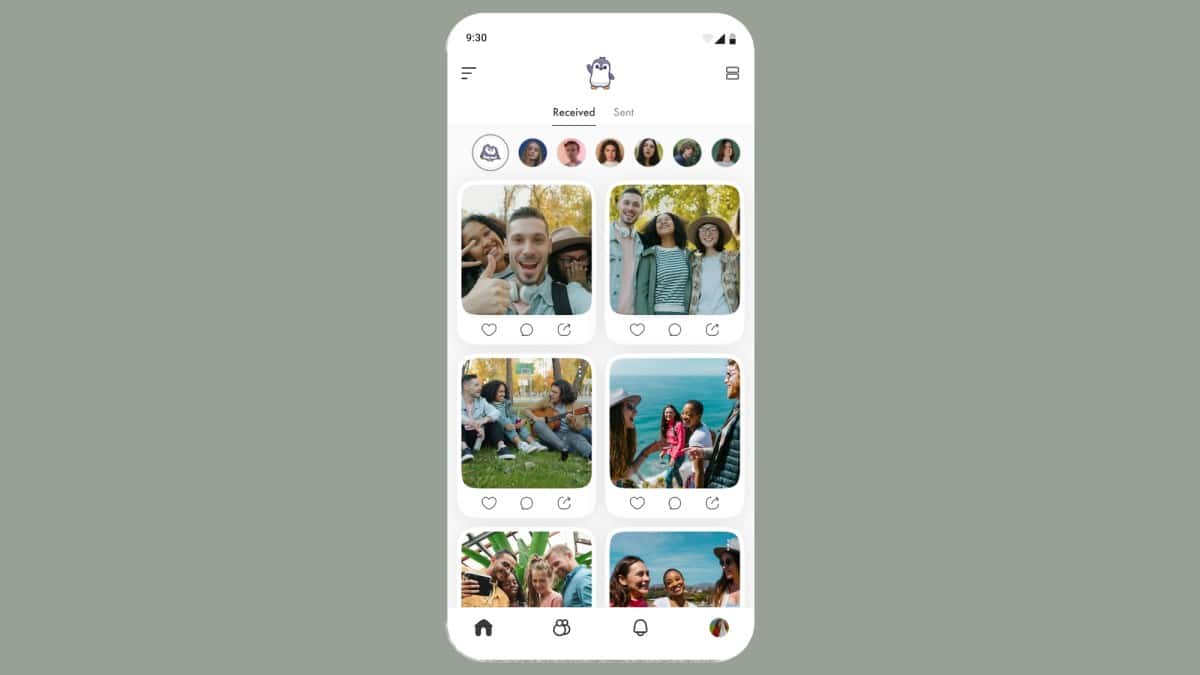Introducing PicSee: A New Era in Photo Sharing
Revolutionizing Photo Sharing with Automatic Detection
In the evolving landscape of photo-sharing applications, new platforms are emerging to meet users’ desires for more authentic sharing experiences. Following a trend where mainstream services like Instagram have become overly curated, innovative apps like Locket, Retro, and Yope are born from the need for unfiltered content. The latest entrant into this space is PicSee, launched by Mayank Bidawatka, co-founder of the Indian social network Koo, which ceased operations last year after failed acquisition talks.
How PicSee Works
Released on both iOS and Android, PicSee focuses on simplifying the photo-sharing process by automatically detecting images of friends stored in users’ camera rolls. This feature minimizes the need for conventional messaging platforms like WhatsApp or Instagram.
Bidawatka emphasizes the significance of this functionality, noting that friends often possess numerous photos of each other that may go unshared. "I’ve been contemplating the complexities of personal photo sharing for quite some time. After the Koo shutdown, I had the opportunity to reevaluate this issue and develop a solution," he explained in an interview with TechCrunch.
Intelligent Sharing Features
Users on PicSee can send sharing requests to their friends. Upon acceptance, the app initiates the photo exchange process by sending the first batch of images. Furthermore, PicSee continuously scans the user’s gallery for new pictures of friends, prompting easy sharing. If users do not send photos immediately, the app will automatically dispatch them after 24 hours, although it allows for a quick review prior to sending. Photos are stored locally within the app, giving users the option to download them directly to their devices.
PicSee also offers a recall feature, enabling users to retrieve photos even after they have been shared, thereby removing them from the recipient’s view.
Commitment to Privacy
To ensure user safety, PicSee integrates robust privacy measures. All processing related to face detection occurs directly on the user’s device, while an encrypted connection is established for photo sharing. The company confirms that photos are never stored in the cloud, further enhancing data security. Additionally, the app comes with built-in filters to manage NSFW content and prevent screenshots.
Challenges Ahead
While PicSee introduces a novel approach to sharing photos, it faces inherent challenges. The idea of seamless sharing may appeal to close friends, family, and partners, but widespread acceptance is uncertain. Many users already utilize messaging apps such as WhatsApp, iMessage, and Snapchat for photo exchanges, making the transition to PicSee potentially daunting.
Additionally, PicSee doesn’t fully resolve scenarios where someone requests a specific photo from events, such as weddings or concerts. Recognizing these social dynamics, the company is actively developing engagement features. A chat option will allow individuals tagged in images to comment, fostering interaction.
Future Development Plans
Looking ahead, PicSee aims to enhance its functionality further by introducing features for album management, duplicate removal, and integration with platforms like Google Photos and iCloud. The team is also exploring applications of its face detection technology for videos stored in users’ camera rolls.
Billion Hearts, the organization backing PicSee, successfully secured $4 million in funding last year from notable investors including Blume Ventures, General Catalyst, and Athera Ventures.
With innovative concepts like PicSee on the horizon, the future of personal photo sharing appears promising, offering users a chance to nurture their connections through effortless sharing experiences.




